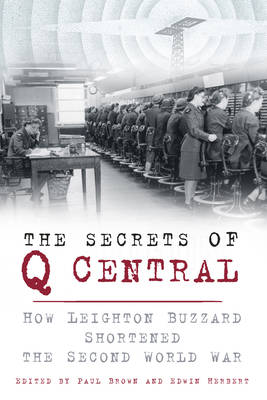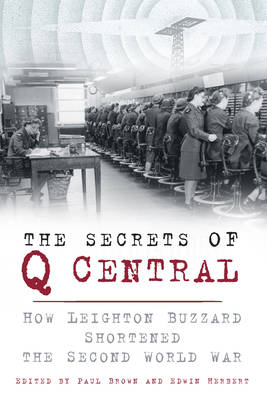
- Retrait gratuit dans votre magasin Club
- 7.000.000 titres dans notre catalogue
- Payer en toute sécurité
- Toujours un magasin près de chez vous
- Retrait gratuit dans votre magasin Club
- 7.000.0000 titres dans notre catalogue
- Payer en toute sécurité
- Toujours un magasin près de chez vous
The Secrets of Q Central
How Leighton Buzzard Shortened the Second World War
Paul Brown, Edward HerbertDescription
The first book about the communications center of Britian in World War II, from which the U.S. also conducted its black ops--features previously unpublished photos, secret maps, and German air photographs
Leighton Buzzard had the biggest telephone exchange in the world 1939-45, handling all telephone and teleprinter communications for the war in Britain, Europe, North Africa, and the Far East. Because of this, Group 60, which controlled all the radar for the Battle of Britain, was centered in the town. Five miles away Bletchley Park was set up to monitor German signals, the Met Office was based in Dunstable, and the area became the center for Black Ops, using radio signals and false newspapers to demoralize the enemy. The work of Group 60 saved the country in the Battle of Britain and is credited with shortening the war. All the information about Leighton Buzzard's role in the war was classified until 2011, with all people involved in the original work having signed the Official Secrets Act. The United States also conducted its black ops from the town from 1942.
Spécifications
Parties prenantes
- Auteur(s) :
- Editeur:
Contenu
- Nombre de pages :
- 320
- Langue:
- Anglais
Caractéristiques
- EAN:
- 9780750960724
- Date de parution :
- 01-05-15
- Format:
- Livre broché
- Format numérique:
- Trade paperback (VS)
- Dimensions :
- 155 mm x 231 mm
- Poids :
- 698 g







